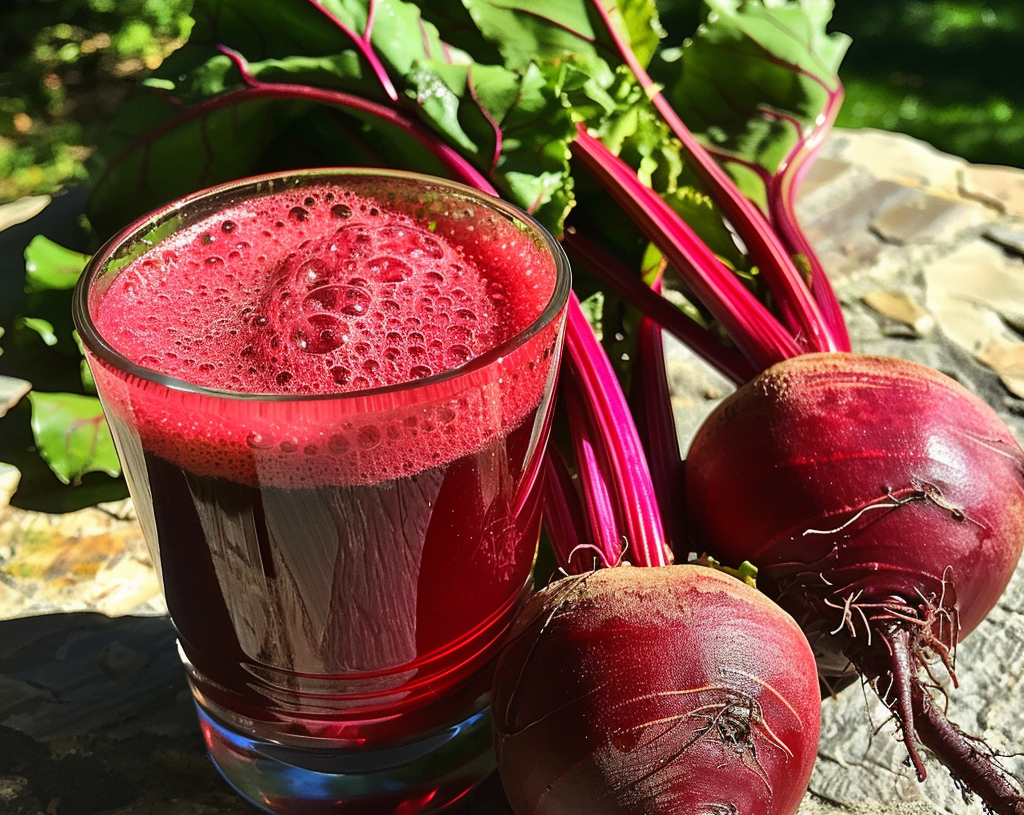For valid reasons, beet juice is quickly becoming a beloved superfood. In addition to being colorful and tasty, it has several health advantages when eaten on a daily basis. Here are nine strong advantages of beet juice that may persuade you to include it into your daily routine if you’re interested in learning more about the health benefits of this vibrant beverage.
Advertised Material
The nitrates in beet juice are converted into nitric oxide by your body, which increases your stamina. Increased blood flow and decreased blood pressure are two benefits of nitric oxide’s ability to relax and open blood vessels. Enhanced stamina and endurance may result, making regular exercise and other daily tasks less taxing.
2. Promotes Heart Health: Beet juice, when used regularly, may aid in the prevention of cardiovascular disorders. Both hypertension and inflammation are major contributors to cardiovascular disease, which it alleviates.
Thirdly, it improves brain health by increasing blood flow, which in turn improves cognitive performance. Increased blood flow to the prefrontal cortex, a region of the brain linked to abstract reasoning and decision-making, is one area where it really shines.
4. Beets Protect the Liver from Toxins: Beets are packed with nutrients including betaine and antioxidants, which aid in liver detoxification. Beet fibers boost enzyme synthesis and reduce fat accumulation, two more ways in which beets improve liver function.
Fifth, it enhances athletic performance; many sportsmen claim to have had better results after drinking beet juice. A popular among fitness aficionados, beet juice’s nitrates lower the oxygen cost of low-intensity activity while improving endurance for high-intensity exercise.
6. Regulates Blood Sugar: Beets are great for keeping blood sugar levels constant since they release sugars slowly into the circulation, thanks to their low glycemic load. Following a meal, this is very helpful.
7. Lessens Inflammation: The betalains found in beets are potent anti-inflammatory pigments. Consistent consumption may lessen the likelihood of chronic inflammation, which in turn lowers the risk of several chronic diseases.
Related posts:
Discover the Magic of Coffee for Youthful Skin: Better Than Botox?
Rediscover the Joy of Homemade Cheese with Grandma’s Three-Ingredient Recipe
Cleanse Your Liver in Just Three Days with This Surprising Prune Recipe
15 Cancer Warning Signs People Ignore Until It’s Too Late
The Surprising Benefits of Eating Onions Every Day
